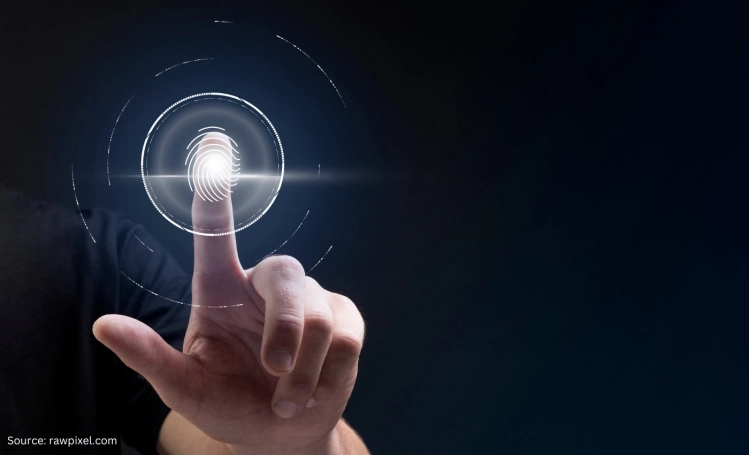By: Pallavi Sethi
March 21 2023
False: The U.K.’s digital identity program wants to destroy individual freedom and liberty.

The Verdict False
Digital IDs can help people save time by securely proving their information without relying on physical documents. Such IDs are not mandatory.
Context
On March 18, 2023, Glastonbury Town Council posted a YouTube video where a member of the public made several unsubstantiated claims regarding digital identities (IDs). During the council meeting, Sandi Adams, who regularly campaigns against the World Economic Forum and Agenda 2030, asserts that digital IDs will stop people "from doing things or saying things if your credit score isn't right." Urging the council and people to take "some sort of action," Adams states such AI technologies are trying to "control us, enslave us...restrict our movements and turn us into a prison planet." A video of the council meeting shared on Facebook received over 200,000 views in the 24 hours after it was posted. Adams's assertions are unfounded, with no evidence that digital IDs will destroy individual freedom and liberty. Adams also falsely claims that "without digital IDs, you won't be able to access your bank accounts and health records." This is false; the IDs are still in beta testing and will not be made mandatory.
In Fact
The Department of Science, Innovation and Technology describes digital IDs as "a digital representation of your identity information, like your name and age." The IDs can also include more information, including one's address and biometric data. The primary aim of such IDs is to help people save time by "securely" proving their identity instead of "repeatedly" presenting physical documents.
There are existing digital identity products used in varied services. For instance, automated border gates use technology to check a passport's authenticity. However, people have to repeat the process of sharing information about themselves to access services from different parts of the government. When opening a bank account, people must go through multiple rounds of identity verification. Through digital IDs, the government aims to make the user process convenient and smoother by enabling "digital identities to be reused" securely. In addition, under the current plans, people will have control over the amount of personal data they share. Since 2020, the department has published several documents, including a trust framework around digital IDs and the government's response to a public consultation on the proposals.
In the video, Adams also falsely claims the United Nation's sustainable development goals are linked to "global enslavement," saying, "If you think the United Nations are our friend, you are wrong." Although the U.N. supports digital IDs, it is not for the reasons listed by Adams. In 2016, the U.N. launched ID2020 to promote "ethical, privacy-protecting approaches to digital ID." The program believes digital IDs can offer "equitable access" and fundamental rights, such as voting, to individuals. Such IDs proved beneficial, especially during the pandemic when governments used digital IDs to identify informal workers and provide them with financial assistance. Existing social security schemes did not cover such workers.
This is not the first time Adams has promoted dangerous propaganda. Besides being a climate denialist, Adams is a proponent of the Great Reset conspiracy theory: the belief that the World Economic Forum not only planned and managed the COVID-19 pandemic, but also used it to control the population through radical policies, such as vaccines and lockdowns. The conspiracy is unfounded, and several organizations, including Logically and the BBC, have repeatedly fact-checked claims related to the theory.
The Verdict
Contrary to Sandi Adams's claims, the government does not want to control and restrict individual freedom and liberty through digital IDs. Instead, such IDs can provide a better and faster way of securing people's data responsibly.


